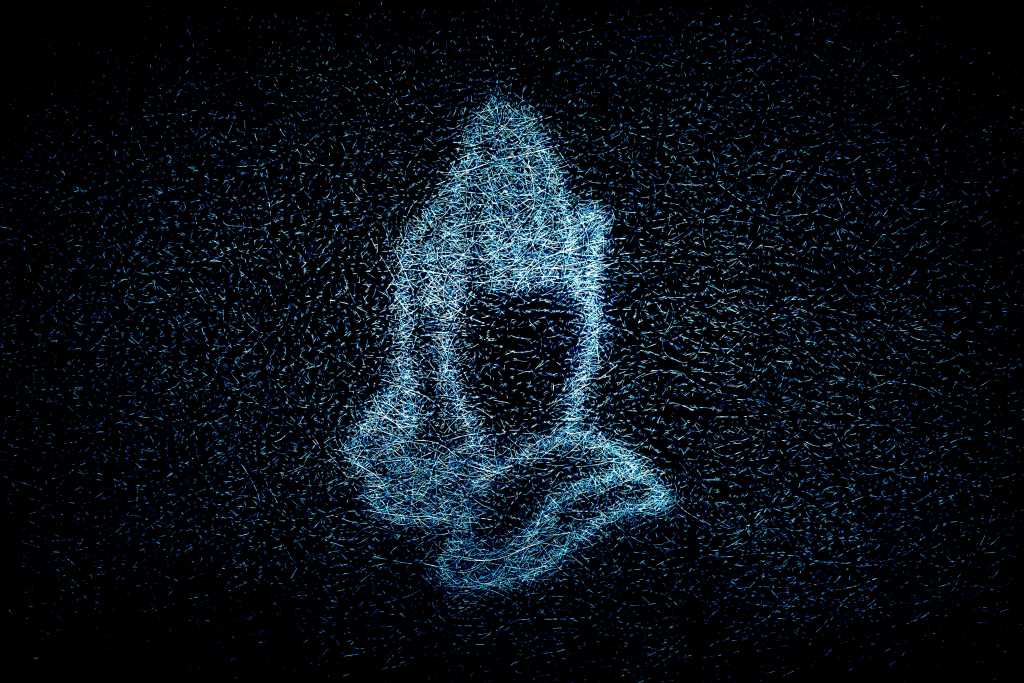Some of the contributors to a new devotional book featuring a prayer asking God for help to “hate White people” are coming to the defense of the author who wrote the controversial reading.
The entry in question, “Prayer of a Weary Black Woman,” was written by Dr. Chanequa Walker-Barnes, a professor of practical theology at Mercer University.
***As the number of voices facing big-tech censorship continues to grow, please sign up for Faithwire’s daily newsletter and download the CBN News app, developed by our parent company, to stay up-to-date with the latest news from a distinctly Christian perspective.***
“Dear God, please help me to hate White people,” she wrote. “Or at least to want to hate them. At least, I want to stop caring about them, individually and collectively. I want to stop caring about their misguided, racist souls, to stop believing that they can be better, that they can stop being racist.”
She went on to explain she isn’t talking about “the White antiracist allies who have taken up this struggle against racism with their whole lives … [and] who are so committed to fighting White supremacy that their own lives bear the wounds of its scars.” Nor is Walker-Barnes interested, she wrote, in hating “the ardent racists” or “stringent segregationists who mow down nonviolent antiracist protesters, who open fire on Black churchgoers, or who plot acts of terrorism hoping to start a race war.”
“My prayer,” the professor petitioned, “is that you would help me to hate the other White people — you know, the nice ones. The Fox News-loving, Trump-supporting voters who ‘don’t see color’ but who make thinly veiled racist comments about ‘those people.’ The people who are happy to have me over for dinner but alert the neighborhood watch anytime an unrecognized person of color passes their house. The people who welcome Black people in their churches and small groups but brand us as heretics if we suggest that Christianity is concerned with the poor and the oppressed. The people who politely tell us that we can leave when we call out the racial microaggressions we experience in their ministries.”
***As the number of voices facing big-tech censorship continues to grow, please sign up for Faithwire’s daily newsletter and download the CBN News app, developed by our parent company, to stay up-to-date with the latest news from a distinctly Christian perspective.***
Toward the end, Walker-Barnes asked God to “harden my heart” and “stop me from striving to see the best in people.”
“Stop me from being hopeful that White people can do and be better,” she wrote. “Let me imagine them instead as white-hooded robes standing in front of burning crosses. Let me see them as hopelessly unrepentant, reprobate bigots who have blasphemed the Holy Spirit and who need to be handed over to the evil one.”
“Grant me a Get Out of Judgment Free card if I make White people the exception to your commandment to love our neighbors as we love ourselves,” the writer continued. “But I will trust in you, my Lord. You have kept my love and my hope steadfast even when they have trampled on it. You have rescued me from the monster of racism when it sought to devour me. You have lifted up my head when it was low and healed my heart when it was wounded.”
Late last week, several of the authors who contributed to “A Rhythm of Prayer: A Collection of Meditations for Renewal” came to Walker-Barnes’ defense.
***As the number of voices facing big-tech censorship continues to grow, please sign up for Faithwire’s daily newsletter and download the CBN News app, developed by our parent company, to stay up-to-date with the latest news from a distinctly Christian perspective.***
In their statement, the writers as well as the book’s editor, Sarah Bessey, argued critics took Walker-Barnes’ words out of context in order to “obscure” its meaning.
“Our sister is bringing her weariness and her anger over the real sin of racism to God,” they wrote. “In what is a clear moment of deep grief, she is talking intimately with her God about her exhaustion, her longing to simply not care anymore. We are given a vulnerable glimpse of her lament, her suffering, her weariness at the call to love her neighbours even when they oppress and marginalize her as a Black woman.”
Walker-Barnes explained via Twitter that she wrote the prayer “after a White person — someone I would have called a friend at the time — dropped the N-word in a casual conversation,” noting she is “one generation removed from sharecropping” and finds the N-word traumatic.
“I took my rage to God in prayer,” she wrote. “I owned it. I was truthful to God about what I was struggling with. And I prayed for God not to let anger and hatred overwhelm me.”
“In all truth,” she continued, “my family and my personal experiences have given me millions of reasons to hate White people. The hatred would be justified. I could even find biblical precedent for it.”
One critic who describes herself as a counselor and theologian, Ariel Gonzalez Bovat, called Walker-Barnes’ prayer “a travesty.”
“It’s a travesty this kind of writing comes from a former clinical psychologist turned ‘ordained minister,’” she wrote. “Under no context should these words be an acceptable method of expression for professing Christians.”
***As the number of voices facing big-tech censorship continues to grow, please sign up for Faithwire’s daily newsletter and download the CBN News app, developed by our parent company, to stay up-to-date with the latest news from a distinctly Christian perspective.***



